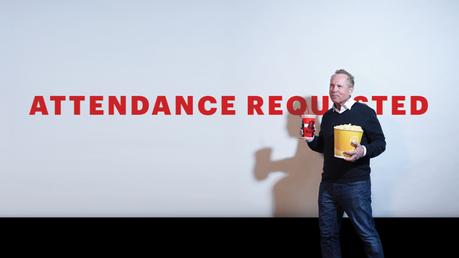The latest is this: MoviePass' new $9.95-for-three-movies-a-month model goes into effect today, and as of last week only 15% of the company's 3 million users had opted into this new plan. That figure probably just went up considerably because, turns out, MoviePass is just going ahead and renewing people's plans without their approval. Heck, it's even auto-renewing those people who have already deleted their accounts.
Not surprisingly, this isn't going over well, and now Helios & Matheson, MoviePass' parent company, h as somewhat quietly admitted it is currently facing a class action lawsuit filed on behalf of the hundreds if not thousands of angry investors. Oh, also, it just posted a quarterly loss of $126 million.
Meanwhile, this is what I see when I look at all of my nearby theaters in the app right now on Wednesday morning at 9:10 AM:
So, other than all of that, things are going just swell for ole MoviePass these days.
This unfolding saga has always been far too juicy to resist. From the beginning, it's been the story of just the latest group of digital disruptors taking aim at one of the last brick and mortar institutions, except in this case the disruptors proclaimed themselves to the be saviors, not the destroyers. Overall film attendance is flat. The millennials aren't showing up. The old way of doing things is startling to look seriously old and dangerously naive about what will happen if something doesn't change.
The solution: Netflix for movie theaters. From the guy who helped co-found Netflix, no less.

Earlier this year, I wrote a profile of MoviePass CEO Mitch Lowe and noted just how many of his strategies seemed to be mimicking everything he learned from Reed Hastings while getting in on Netflix's ground floor two decades ago. I was skeptical of Lowe's pollyannaish statements about his company's assured growth and survival, but I also agreed with his general view of what ails moviegoing and was intrigued to see if a subscription model could truly work in the long term.
In the months since I wrote that, literally everything MoviePass has done, from constantly shifting membership terms to the scourge of surge pricing, just made things worse. Lowe is still out there, l ike a tech Sarah Sanders, looking at a burning world and saying everything is fine. But, the end is nigh. The stock closed at just $0.05 yesterday. Nasdaq is sure to delist them from the stock exchange soon (such a process is mandatory when a company trades at less than a dollar for 30 straight days).
So, now seems like a good time to move further up the chain and look not at Mitch Lowe, but instead his bosses at Helios & Matheson, most notably Ted Farnsworth and board member Muralikrishna Gadiyaram. They, not surprisingly given how things have been going, are shady as fuck.
As per the Miami Herald:
- Just four of the 50 companies Farnsworth has registered in the state of Florida over the last few decades are still active.
- Notable among those failed companies is the Psychic Discovery Network, a call-in hotline for psychic advice which managed to gain an endorsement from La Toya Jackson. It eventually racked up at least 50 consumer complaints and was named by the Federal Trade Commission on "a list of abusive pay-per-call services.
- Only three of Farnsworth's 50 companies managed to go public, and of those three all of them "saw their value drop by 99 percent, below $1 per share in each case, within three years of being listed during Farnsworth's tenure." You can now add MoviePass to that list.
- One such companies was XStream Beverage Network, which Farnsworth launched in 2001 and aggressively touted as a potential competitor to Red Bull. His boasts and attempted deals never amounted to anything concrete, forcing him to step down as chairman in 2007, cratering the company's stock value in the process.
- Farnsworth was up to his old tricks just a year later with the Purple Beverage Company, which solicited "a slew of celebrity spokespeople to sell the beverage, including Chaka Khan." The company, not surprisingly, folded in ignominy.
- Farnsworth tried it all again in 2012 with LTS Nutraceuticals, which attempted to mimic the business models of companies like Amway and Herbalife. The results were predictable: "failure to make required regulatory filings" followed by trading for pennys per share.
- Furthermore, Farnsworth has been the target of eight different civil suits, most of which revolved around unpaid bills and settlements.
- Not to be left out, MoviePass board member and major shareholder Muralikrishna Gadiyaram has had not one but two different companies "kicked off of two stock exchanges and is accused of defrauding investors."
Farnsworth came to his current position via a digital crime-mapping platform he ran as a private startup. This company, Zone Technologies, merged with the digital firm Helios in July 2016, which "allowed Helios to meet the minimum $2.5 million market cap requirement to remain listed on the NASDAQ exchange." Farnsworth was named CEO at the start of the following year, and by August 2017 Helios was the new majority owner of MoviePass. That's when the price drop from $30 a month to $9.95 went into effect. It's a year later and now they're being sued by investors and aren't letting their own customers cancel their accounts.
Anyone with any business sense could see MoviePass probably wasn't built for the long term; anyone who knew about Farnsworth's background, however, could have likely guessed this was always going to turn into an utter shitshow. Let the lawsuits begin.

